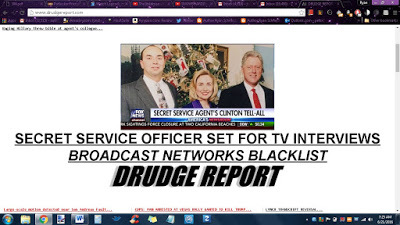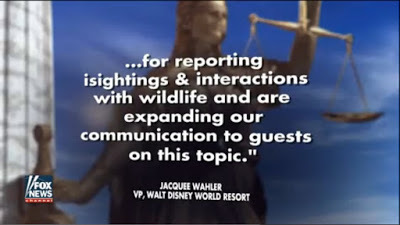Ryan Schneider's Blog, page 5
March 29, 2017
A.I. Storybundle is Finally Here (for a Limited Time; Seriously)
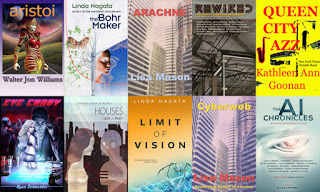
THE A.I. BUNDLEhttps://storybundle.com/aiThe A.I. Bundle - Curated by Lisa MasonArtificial Intelligence—A.I. When computer technology becomes conscious. Self-aware. Genuinely as intelligent as human beings. Will A.I. benefit us? Or become our greatest enemy? Theoretical physicist Stephen Hawking told the BBC, "Full artificial intelligence could spell the end of the human race."Futurist Ray Kerzweil, Bill Gates, and others have concluded that the Singularity—that moment when A.I. truly exists—has not yet arrived. Or has it?From the early 1980s to this day, science fiction writers have tackled difficult questions about A.I., speculating about the future and asking what if? You must check out these thought-provoking books from authors—bestselling, award-winning, as well as popular indies—in the A.I. StoryBundle.In Aristoi, by New York Times bestselling author Walter Jon Williams, an elite class holds dominion over a glittering interstellar culture with virtual reality, genetic engineering, faster-than-light travel, artificial intelligence, nanotechnology, telepathic links with computers, and more. But murder threatens to rip that world apart. In The Bohr Maker, by multiple-award-winning Linda Nagata, a powerful, illicit device is a microscopic factory full of self-replicating machines programmed to transform a human host into a genius-level nanotech engineer. In Limit of Vision, also by Nagata, biotechnologists have enhanced their cognitive abilities when the experiment goes terribly wrong. In Locus Hardcover Bestsellers Arachne and Cyberweb, by Philip K. Dick Award Finalist Lisa Mason, telelinker Carly Quester confronts an A.I. therapist and finds herself entangled in the machinations of powerful A.I. entities. In Rewired: The Post-Cyberpunk Anthology, editors John Kessel and James Patrick Kelly present stories about A.I. and the future by William Gibson, Bruce Sterling, Pat Cadigan, Jonathan Lethem, Walter Jon Williams, and eleven others. In Queen City Jazz, award-winning Kathleen Ann Goonan's teenage heroine Verity journeys to the technologically superior but dangerously insane ``enlivened'' city of Cincinnati. In Glass Houses: Avatars Dance, acclaimed Laura J. Mixon takes us to a dystopian Manhattan of the next century where Ruby and her Golem run into serious trouble. In Eye Candy, popular indie author Ryan Schneider takes us to Los Angeles of 2047 where a roboticist famous for his books about artificially-intelligent beings finds himself on a blind date with a beautiful robopsychologist. Physicist and award-winning editor Samuel Peralta offers thirteen stories addressing the Singularity in The A.I. Chronicles Anthology.As always at StoryBundle, you the reader name your price—whatever you feel the books are worth. You may designate a portion of the proceeds to go to a charity. For the A.I. StoryBundle, that's Science Fiction and Fantasy Writers of America ("SFWA"). SFWA champions writers' rights, sponsors the Nebula Award for excellence in science fiction, and promotes numerous literacy groups. – Lisa MasonThe initial titles in the AI Bundle (minimum $5 to purchase) are:Aristoi by Walter Jon WilliamsArachne by Lisa MasonThe Bohr Maker by Linda NagataQueen City Jazz by Kathleen Ann GoonanRewired - The Post-Cyberpunk Anthology by James Patrick Kelly and John KesselIf you pay more than the bonus price of just $15, you get all five of the regular titles, plus FIVE more!The A.I. Chronicles by Samuel Peralta and Ellen CampbellEye Candy by Ryan SchneiderCyberweb by Lisa MasonLimit of Vision by Linda NagataGlass Houses by Laura J. MixonThis bundle is available only for a limited time via https://storybundle.com/ai and http://www.storybundle.com. It allows easy reading on computers, smartphones, and tablets as well as Kindle and other ereaders via file transfer, email, and other methods. You get multiple DRM-free formats (.epub and .mobi) for all books!It's also super easy to give the gift of reading with StoryBundle, thanks to our gift cards – which allow you to send someone a code that they can redeem for any future StoryBundle bundle – and timed delivery, which allows you to control exactly when your recipient will get the gift of StoryBundle.Why StoryBundle? Here are just a few benefits StoryBundle provides.Get quality reads: We've chosen works from excellent authors to bundle together in one convenient package.Pay what you want (minimum $5): You decide how much these fantastic books are worth. If you can only spare a little, that's fine! You'll still get access to a batch of exceptional titles.Support authors who support DRM-free books: StoryBundle is a platform for authors to get exposure for their works, both for the titles featured in the bundle and for the rest of their catalog. Supporting authors who let you read their books on any device you want—restriction free—will show everyone there's nothing wrong with ditching DRM.Give to worthy causes: Bundle buyers have a chance to donate a portion of their proceeds to The Science Fiction and Fantasy Writers of America!Receive extra books: If you beat the bonus price, you'll get the bonus books!StoryBundle was created to give a platform for independent authors to showcase their work, and a source of quality titles for thirsty readers. StoryBundle works with authors to create bundles of ebooks that can be purchased by readers at their desired price. Before starting StoryBundle, Founder Jason Chen covered technology and software as an editor for Gizmodo.com and Lifehacker.com.For more information, visit our website at storybundle.com, tweet us at @storybundle and like us on Facebook .
Published on March 29, 2017 05:44
February 13, 2017
Calling All Authors
This is a quick, completely informal survey about which service you use/prefer for your online author presence.
Blogger?
Wordpress?
Wix?
Squarespace?
Weebly?
Or do you retain the services of a third-party company or webmaster/hosting service?
I've been using Blogger for about 7 years and for the most part am pleased with it. The reason I chose it was because of the interface. I monkeyed around with Wordpress but couldn't immediately figure out how to build and configure and customize my new site. Whereas with Blogger, I had the thing up and running in about 30 minutes. It's SO easy to use. Getting my own domain name and pointing it at the blogger site turned out to be a total pain in the ass, but it was taken care of eventually.
I'm also experimenting with Wix for a new project, but it's pissing me off. I'm thinking about going back to Blogger.
So, I'm curious, in 2017, what everyone is using.
What do you recommend?
Please let me know!
Thanks.
Blogger?
Wordpress?
Wix?
Squarespace?
Weebly?
Or do you retain the services of a third-party company or webmaster/hosting service?
I've been using Blogger for about 7 years and for the most part am pleased with it. The reason I chose it was because of the interface. I monkeyed around with Wordpress but couldn't immediately figure out how to build and configure and customize my new site. Whereas with Blogger, I had the thing up and running in about 30 minutes. It's SO easy to use. Getting my own domain name and pointing it at the blogger site turned out to be a total pain in the ass, but it was taken care of eventually.
I'm also experimenting with Wix for a new project, but it's pissing me off. I'm thinking about going back to Blogger.
So, I'm curious, in 2017, what everyone is using.
What do you recommend?
Please let me know!
Thanks.
Published on February 13, 2017 08:32
January 27, 2017
Who Loves OOTP?
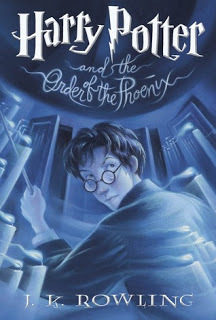
How many words is too many words?
For you, as a reader, what length of books do you typically read?
Do you tend to read shorter works, perhaps in the neighborhood of 60,000?
Or do you enjoy longer works? Upwards of 130,000 words (or more)?
Industry standards have been in place for books according to genre. It's rare that any book (fantasy is the exception) will be accepted by an agent for consideration if it's over 100,000-ish.
For example, consider the Harry Potter series. Kids' books, right? So, no way can a kid's book be more than 50,000-60,000 words. Right? What kid can read anything greater than that?
Well, pretty much all of them, apparently, considering the word counts of the books in the series:
Harry Potter and the Sorcerer’s Stone – 76,944 wordsHarry Potter and the Chamber of Secrets – 85,141 wordsHarry Potter and the Prisoner of Azkaban – 107,253 wordsHarry Potter and the Goblet of Fire – 190,637 wordsHarry Potter and the Order of the Phoenix – 257,045 wordsHarry Potter and the Half-Blood Prince – 168,923 wordsHarry Potter and the Deathly Hallows – 198,227 words
OOTP is 257,045 words?
WHAT?
I don't know about you, but I didn't want those books to end. I didn't want the series to end.
So, no, 257,045 wasn't too many words.
Personally, I enjoy a longer tale. A book to "get comfortably lost in" as Stephen King once put it. His works are on the longer side. I grew up reading them. Perhaps this is why my books are on the longer side.
I often ponder this as I'm writing and watching the word-count climb. But I let the story be what it wants to be. I don't think it's wise or necessary to adhere to an arbitrary word count or limit.
The bottom line is that a great story is a great story. Word count be darned.
So, what do you prefer? Are you glad Jo let OOTP roam? Or would it have been best if each of the HP tomes was locked at 80K?
Published on January 27, 2017 09:03
June 21, 2016
Today's Typo
Published on June 21, 2016 04:28
June 20, 2016
Today's Typo
Published on June 20, 2016 13:30
June 16, 2016
Today's Casual Typo
Casual?
That's supposed to say 'causal', meaning that it is a direct cause.
Come on, people; this is not a tweet; this is a graphic on a major news network. You're better than that.
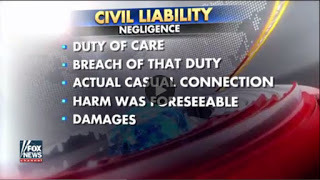
That's supposed to say 'causal', meaning that it is a direct cause.
Come on, people; this is not a tweet; this is a graphic on a major news network. You're better than that.

Published on June 16, 2016 10:56
June 1, 2016
10 Questions with Occult Fiction Novelist J.D. Horn (@AuthorJDHorn)
This Author Spotlight
featuresOccult Fiction Novelist
J.D. Horn
Author of
Jilo
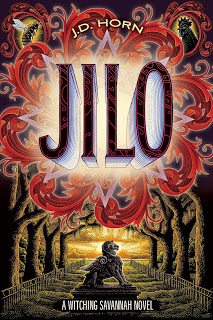
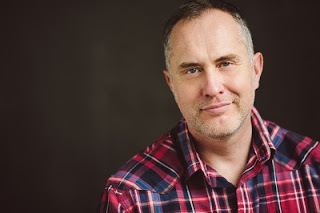
J.D. Horn was raised in rural Tennessee and has carried a bit of its red clay with him while traveling the world, from Hollywood to Paris to Tokyo. He studied comparative literature as an undergrad, focusing on French and Russian in particular. J.D. also holds an MBA in international business and worked as a financial analyst before becoming a novelist. His newest novel, Jilo, is a standalone prequel to the bestselling Witching Savannah series. Previous titles in the series are The Line, The Void and The Source. Along with his spouse, Rich, and his furry coauthors, Duke and Sugar, J.D. divides his time between Black Butte Ranch, Oregon, and San Francisco, California
1. How did you get into writing and why do you write?
I see a desire to write as the natural extension of the love of reading. I began writing (on a typewriter even—yes, I’m that old) in high school, though, perhaps happily, none of my writing from that period survives. I completed my first, still unpublished, novel twenty years ago, and got really beaten up and discouraged by the attempt to find a publisher. Years later, my spouse uncovered the manuscript and encouraged me to give writing—and attempting to get published—another go. It took a few more years, but this time it worked.
2. What do you like best (or least) about writing?
I love writing. I love storytelling. The part I find most difficult is the marketing side of being an author. Building an audience isn’t easy, and it can be hard to keep the focus on your work, rather than on aspects of your personal life. Sometimes it’s difficult to gauge just how much of yourself you should share with readers and potential readers.
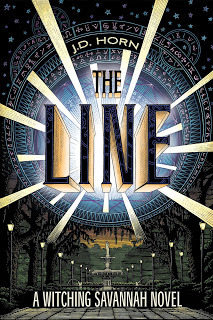 3. What is your writing process, i.e,, do you outline? Do you stick to a daily word or page count, write 7 days a week, etc?
3. What is your writing process, i.e,, do you outline? Do you stick to a daily word or page count, write 7 days a week, etc? I start with a loose summary, but I’m essentially a pantser…which makes it difficult when you’ve sold a story based on a summary. I find, though, that in the writing, sometimes a character I thought would be minor flares to life, and helps drive the story. In The Line, the role of Jilo—the titular heroine of my latest release—was originally intended to be nothing more than a mention of her name in relationship to another character. That character, Martell, ended up disappearing, both figuratively and literally, from the story, to be replaced by Jilo herself. Jilo became the breakout character of the series and the hands-down favorite of most of my readers. So, yeah, I like to let the story grow organically, rather than force it to fit an outline composed weeks or even months earlier. Of course the hard part becomes convincing your publisher that the book you wrote really is the book you promised them.
4. Who are some other writers you read and admire, regardless of whether they are commercially “successful?”
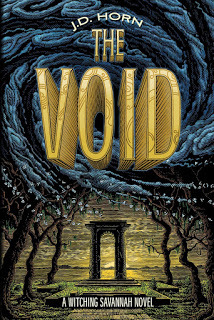 I was a Comparative World Literature major undergrad, so, basically, you can include most of the dead white male author club. Contemporary writers, especially those who have influenced me include Douglas Adams, Charlaine Harris, Armistead Maupin, Anne Rice, Alice Hoffman, Alice Walker, Kim Stanley Robinson, among many others. It’s funny, though, whenever I’m asked this question, my mind leaps to writers of fiction, but recently something happened to remind me how influential two nonfiction books about Savannah, John Berendt’s Midnight in the Garden of Good and Evil and Margaret Wayt Debolt’s Savannah Spectres, were on my Witching Savannah series. Without these two books, there would be no Witching Savannah.
I was a Comparative World Literature major undergrad, so, basically, you can include most of the dead white male author club. Contemporary writers, especially those who have influenced me include Douglas Adams, Charlaine Harris, Armistead Maupin, Anne Rice, Alice Hoffman, Alice Walker, Kim Stanley Robinson, among many others. It’s funny, though, whenever I’m asked this question, my mind leaps to writers of fiction, but recently something happened to remind me how influential two nonfiction books about Savannah, John Berendt’s Midnight in the Garden of Good and Evil and Margaret Wayt Debolt’s Savannah Spectres, were on my Witching Savannah series. Without these two books, there would be no Witching Savannah. 5. Should the question mark in the above question be inside or outside the quotes?
Argh! I struggle with this one. I was taught that the question mark should always go inside the quotes, but that “rule” grates on me. What I’d like the rule to be is that the question mark goes inside the quotes if the words contained within the quotes constitute a question. For example: Her exact words were “Have you read the works of H.G. Wells?”The question mark would go outside if the words contained within the quotes don’t constitute a question.For example: Have you read “The War of the Worlds”?Take heed, world, this is how I want to handle question marks. Make it so!
6. What’s your stance on the Oxford comma?
I’m a fairly recent convert to Team Oxford Comma—within the last three years, actually. One day, I found myself writing a sentence—cannot remember what it was—but realized that without the Oxford comma, my sentence had a meaning that was very different from the one I’d intended. It was my road to Damascus. I saw a flash of light, and became an instant evangelist.
 7. What is your book Jilo about and how did it come to fruition?
7. What is your book Jilo about and how did it come to fruition?
Jilo is a standalone prequel to the Witching Savannah series (The Line, The Source, The Void). It can be read (and enjoyed) without having read the other three books in the series. It’s a separate entrance to the Witching Savannah world. After the first three books, my publisher allowed me the opportunity to revisit the world, and I knew without a single doubt that I wanted to spend more time getting to know Jilo Wills. When we meet Jilo in The Line, she’s in her eighties. I wanted to go back and get to know her as a young person, get to see how she grew into the woman she became. The problem in writing this prequel was that the polished and genteel city of Savannah that we know today, was—during the period of Jilo’s early life—rundown, rife with corruption, and stained by the sin of the Jim Crow laws. Even though the Witching Savannah series is a fantasy series, I couldn’t write Jilo without addressing these facts.
8. What’s your current writing project?
I have two projects vying for my attention. The first is a new paranormal series set in New Orleans, and the other is a new mystery series set in my old neighborhood in Portland, Oregon.
9. What book(s) are you currently reading?
I’m in full research mode, so I’ve just finished Tom Piazza’s Why New Orleans Matters, Bloody Mary’s Bloody Mary's Guide to Hauntings, Horrors, and Dancing with the Dead: True Stories from the Voodoo Queen of New Orleans, and am about to crack open Kodi A. Roberts’s Voodoo and Power: The Politics of Religion in New Orleans, 1881-1940. And before you start thinking I’m writing yet another NOLA Voodoo book, think again. I’ll be taking this series in a whole new direction. In my series, Voodoo will be given the respect a religious and historical movement deserves; it won’t be about sticking pins in dolls and raising zombies.
10. Who or what inspires your writing?
My original inspiration was my love of storytelling. Now, though, I have to admit, my readers inspire me. Their enthusiasm for my books, and their love of my characters, make me want to keep bringing new work out. Of course, as I mentioned earlier, it was my spouse who gave me the original push—and who continues to give me a kick in the pants, whenever I lose my way.Finally, is there anything you’d care to add? Please also include where people can read your published stories, buy your book, etc.
You can find my books on Amazon.com, BarnesandNoble.com, Powells.com, basically all the .coms. BUT if you want to make me really happy, please go to your local library and ask them to order it. That way, when you’re through, the books will be there for others to discover.
Thanks, JD!
Please visit with us again when your next book is ready.
Be sure to grab your copy of Jilo today!

Published on June 01, 2016 16:36
May 26, 2016
Put It Out There
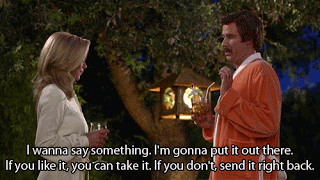
How many books should a writer write in 1 year?
1?
Less than 1?
More than 1?
One indie author I know comes to mind; this person writes 6 to 8 books per year.
The books this person writes are good books. The books written by this person sell well and receive good reviews.
This person writes full-time.
That's how this person is able to produce 6 to 8 novels in a year. It's roughly a book every 6 to 8 weeks.
Some people would say this is too many; that the quality must be poor. Not so, apparently, given the quantity of books sold, overall high praise, and career advancement. And money earned. And let's face it, that's a good thing. But for now, let's remain focused on productivity.
I've written 5 novels in the past 12 months, with publishing beginning next month. And I have 6 more in development, open, right now, at this very moment, in Word, nearly ready for the first draft to begin.
Other writers I know (or know of, mostly through social media and not personally), write far less than 6 to 8 books per year. It's more like a book every 3 to 4 years. Or never. Zero books. Because all they do is write; they're always writing, always editing, always polishing, always starting new projects, new novels, and always perpetually hoping to make it as a writer; but they never actually finish something, slap a cover on it, and put it out there.
And you have to put it out there.
No matter what it is.
You have to share it.
That's the point.
But what if no one knows who you are because they've never heard of you because they've never read your work because you've never put your work out there?
So put your work out there.
If you've already put your work out there, bravo; kudos; well done; continue to do so.
If you've not yet put your work out there, take a moment to consider why this is.
And then forget about all of that, be courageous, set a deadline, work backwards to create a production schedule timeline daily word count to figure out how many words you must write and/or edit in order to meet your target date, and then do it.
Get it done.
And then move on.
Don't worry about perfection.
It's doesn't exist.
It's better to do as well as you can on your current WiP with whatever knowledge and ability you have now in order to complete your project so you may move on to the next project.
Think about all the cool stories you want to tell. That's exciting, right?
You can't move on until you've completed what you're doing now.
Focus on the thrill of creation, of telling the story, and moving on. (Don't focus on sales or reviews or money or comments; doing so will sow insecurity, doubt, and hesitation.)
The only way to get better is by doing.
Not by theorizing. Not by observing. Not by contemplating.
But by doing.
So get going.
Be inspired.
Have fun.
Love what you do.
Tell your story.
And then put it out there.
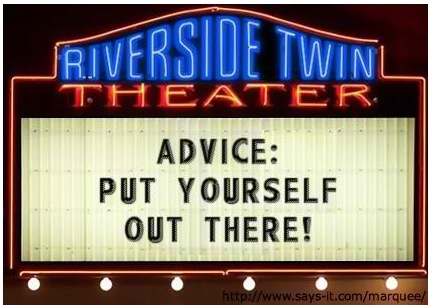
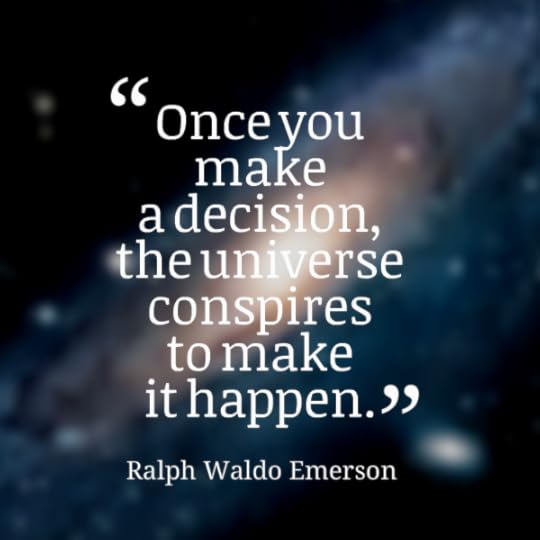
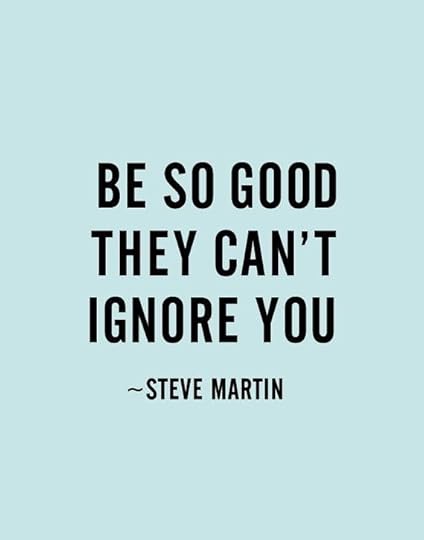
Published on May 26, 2016 15:50
May 14, 2016
The Story Collection Storybundle Is Live May 11 through June 2!
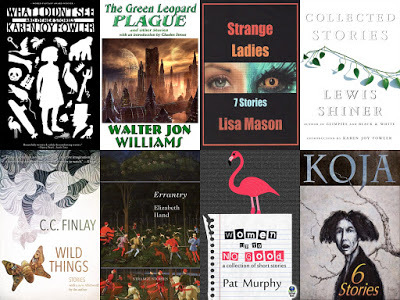
What I Didn't See: Stories by Karen Joy FowlerThe collection won the World Fantasy Award and the title story won the Nebula. Fowler wrote The Jane Austen Book Club, a New York Times Bestseller made into a film, and won the 2013 PEN/Faulkner for We are all completely beside ourselves.
The Green Leopard Plague and Other Stories by Walter Jon WilliamsTwo stories in this collection won the Nebula Award. Williams was a Philip K Dick Award Finalist and placed numerous times for the Nebula and Hugo Awards.
Strange Ladies: 7 Stories by Lisa MasonThe collection received five stars from the San Francisco Review of Books. Mason was a Philip K Dick Award Finalist and New York Times Notable Book Author. Mason’s OMNI story, “Tomorrow’s Child,” sold outright to Universal Studios.
Collected Stories by Lewis ShinerThe collection is an ebook exclusive for Storybundle, includes forty-one stories, and has an Introduction by Karen Joy Fowler. Shiner was a finalist for the Philip K Dick Award, the Hugo Award, and the Nebula Award.
Wild Things by C. C. FinlayThe collection is an ebook exclusive for Storybundle and has a new Afterword. A multi-award-nominated author, Finlay is the editor of The Magazine of Fantasy and Science Fiction.
Errantry: Strange Stories by Elizabeth HandHand won the World Fantasy Award four times, the Nebula Award twice, the Shirley Jackson Award twice, the Mythopoetic Award, and was a New York Times and Washington Post Notable Book Author.
Women Up to No Good by Pat MurphyTwo stories in the collection were nominated for the Nebula. Murphy won the Nebula twice, the World Fantasy, and the Philip K Dick Award.
6 Stories by Kathe KojaThe collection was created by the author exclusively for Storybundle. Koja won the Bram Stoker Award and was a Philip K Dick Award Finalist.At Storybundle , readers may choose what they wish to pay. There’s a Core Bundle and additional Bonus Books. Readers may also donate to a charitable beneficiary, which for this bundle is Science Fiction and Fantasy Writers of America. The Story Collection Storybundle will run from May 11 through June 2, 2016. When it’s gone, it’s gone.Lisa MasonCurator of The Story Collection Storybundlehttp://www.lisamason.com
Published on May 14, 2016 09:58
March 21, 2016
Every Day vs. Everyday
I see this all the time.
Please note, world, that everyday is not the same as every day. They mean different things.
Memorize the following from Grammarist.com:
Everyday vs. every day Everyday is an adjective used to describe things that (1) occur every day, or (2) are ordinary or commonplace. In the two-word phrase every day , the adjective every modifies the noun day, and the phrase usually functions adverbially. For example, every day you eat breakfast. You brush your teeth every day. Maybe you go for a walk every day. These are everyday activities.When you’re not sure which one to use, try replacing everyday/every day with each day. If each day would make sense in its place, then you want the two-word form. Everyday, meanwhile, is synonymous with daily or ordinary, depending on its sense.(http://grammarist.com/usage/everyday-...)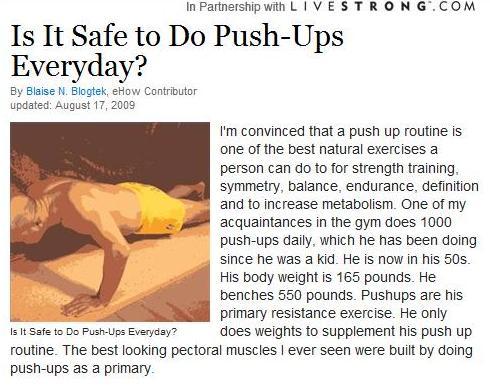

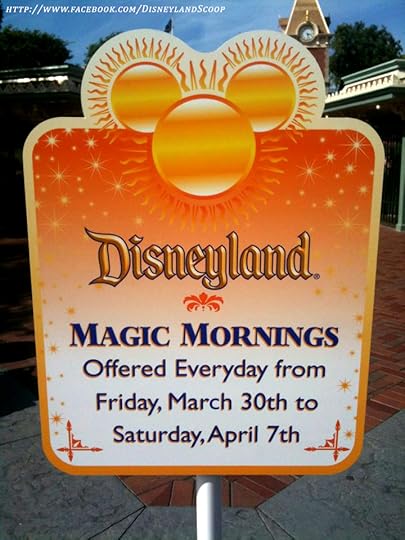
Less of this: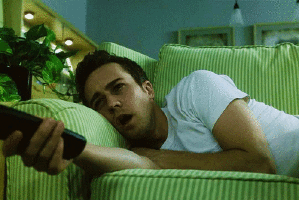
More of this: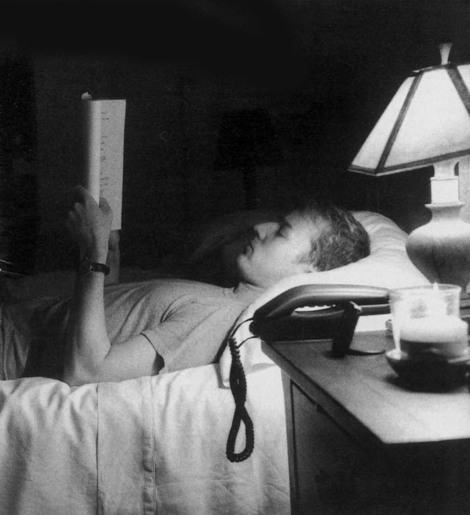
Ask any learned person how they became learned. They'll say they read a lot.
Thank you.
Please note, world, that everyday is not the same as every day. They mean different things.
Memorize the following from Grammarist.com:
Everyday vs. every day Everyday is an adjective used to describe things that (1) occur every day, or (2) are ordinary or commonplace. In the two-word phrase every day , the adjective every modifies the noun day, and the phrase usually functions adverbially. For example, every day you eat breakfast. You brush your teeth every day. Maybe you go for a walk every day. These are everyday activities.When you’re not sure which one to use, try replacing everyday/every day with each day. If each day would make sense in its place, then you want the two-word form. Everyday, meanwhile, is synonymous with daily or ordinary, depending on its sense.(http://grammarist.com/usage/everyday-...)



Less of this:

More of this:

Ask any learned person how they became learned. They'll say they read a lot.
Thank you.
Published on March 21, 2016 10:59

